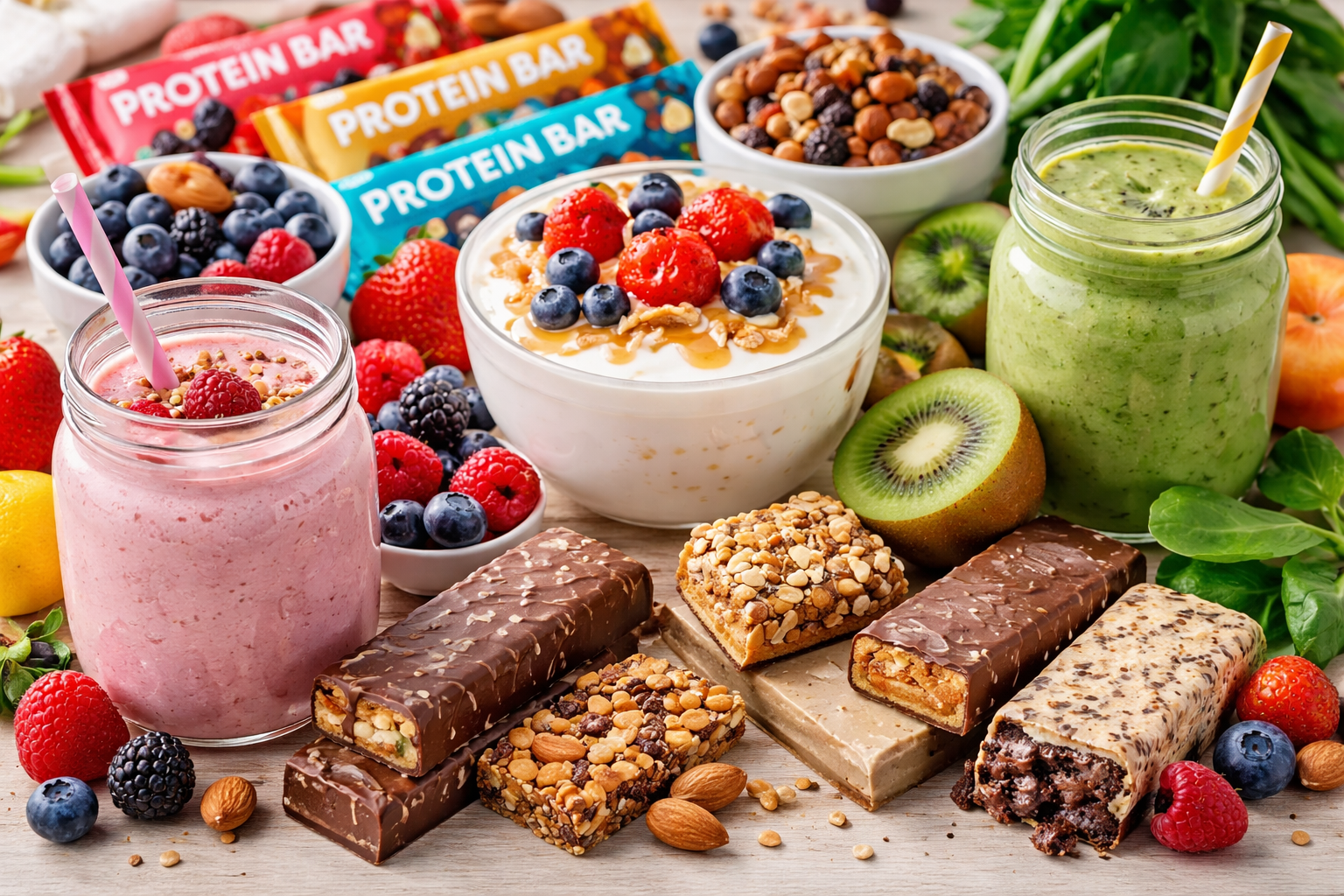Turkey Burger vs Beef Burger: Is There a “Right” Choice?
These days, it seems like every cookout turns into a debate of turkey burger vs beef burger. In light of recent cultural shifts towards healthy food swaps, it’s no surprise consumers of all ages are weighing their options and making tough choices between old classics and new, health-focused alternatives.
Want deeper insight into what’s shaping food and beverage innovation in the year ahead?
What is a beef burger?

Burgers, or hamburgers, are a classic dish that typically consist of a patty of ground meat sandwiched between two buns. Originally developed in Hamburg, Germany, hamburgers are traditionally made with ground beef – ideally with a fat content of around 80% lean and 20% fat. This blend delivers an ideal combination of flavor, crust and tenderness and provides an excellent vehicle for a variety of topping selections. While beef burgers have been an iconic American food staple for nearly a century, they’ve recently been enjoying a spike in popularity, with Tastewise reporting 22.87% YoY growth in social discussions about beef burgers.
What is a turkey burger?
A turkey burger is a healthier take on the classic hamburger than is made of ground turkey rather than beef. Turkey burgers are often made of a combination of both light and dark meat, and some versions may also include filler ingredients like breadcrumbs to enhance texture and help the patty come together. The primary reason consumers opt for turkey burgers instead of beef burgers is that turkey burgers usually boast a lower fat content than even lean beef burgers. For health-conscious consumers, turkey burgers provide a tasty and filling twist on a classic that can be enjoyed at home, in restaurants and at celebratory cookouts.
Turkey burger vs beef burger: Nutritional differences
As previously noted, turkey burgers are a popular choice among health-focused foodies because they deliver a lightened-up way to enjoy an American staple. Since many consumers opt for turkey burgers for health reasons, it’s important to understand exactly how turkey burgers and beef burgers stack up from a nutritional standpoint.
Here’s a quick overview of the key nutritional differences between these two burger varieties, based on nutritional data from Nutritionix:
| Nutrients (per 3oz patty) | Beef Burger (80/20) | Turkey Burger |
| Calories | 230 | 212 |
| Fat | 15.4g | 14g |
| Cholesterol | 77mg | 89mg |
| Sodium | 63.8mg | 69mg |
| Carbohydrates | 0 | 0 |
| Protein | 22g | 22g |
As you can see, turkey burger patties tend to be slightly lower in calories than beef burger patties, as well as lower in fat. However, many health-conscious beef burger fans opt for slightly leaner patty varieties that boast a fat ratio of 90/10 or even 93/7. At this ratio, the fat content is similar to the fat content of the average turkey burger.
Notably, however, turkey burgers tend to be substantially lower in saturated fat than beef burgers, which often serves as a sticking point for consumers who are closely tracking their macros. In either case, both patty options deliver a solid ratio of protein to calories, making them both filling and fueling in all formats.
Current burger trends
With burgers of all varieties making a major comeback in the food and beverage space, it’s no surprise that consumers and brands alike are keeping close tabs on the latest burger trends. Here are a few of the current food trends making major impressions on American burger culture:
Health food craze
Today’s consumers are incredibly health conscious, which is part of the reason why turkey burger trends are gaining so much steam – as are chicken burger trends and veggie burger trends. Burgers can also be modified to suit a number of other dietary needs and preferences, with gluten-free and keto hamburger bun trends empowering consumers to continue enjoying their favorite foods even in light of emerging dietary shifts.
Creative customization
Creative burger toppings are helping consumers take even “healthy” burger options to the next level. Toppings like avocado, gourmet cheeses, fried eggs and pickled veggies can add variety, flavor and a nutritional boost to just about any burger you want to build.
Luxury food trends
Premiumization is proving to be a major motivator for consumers around the world. Subsequently, elevated twists on turkey burgers and beef burgers are keeping foodies interested in this long-standing staple. Burger enhancements like artisanal cheeses, hand-crafted aiolis, gourmet meats (like porchetta) and even freshly shaved truffles and putting a luxury spin on even the healthiest of turkey patties.
Smash burgers
In the world of burgers, smash burgers are making major waves. A good smash burger is crispy, juicy and just the right amount of fatty so as to deliver the ideal balance of texture and flavor. Some turkey burger and even veggie burger brands are hopping on the smash burger trend bandwagon and developing patties that can hold their own when put to the smash test.
Sales and consumption: Burgers by the numbers
In addition to comparing the key nutritional difference between beef and turkey burger, brands will want to carefully weigh the latest consumer insights in order to develop menu items and CPG products that speak to their consumer base. Here’s a quick overview of some of the latest consumer data related to beef and turkey burger consumption:
- The global packaged burger market was valued at $4.43 billion in 2024 and is projected to reach $6.99 billion by 2030.
- 38.75% of U.S. restaurants offer burger dishes on their menus
- 3.96% of U.S. restaurants offer turkey burger dishes on their menus
- 23% of turkey burger consumers say taste is their number one consumer need
- Vegan burgers are the most commonly-sought dietary adaptation of turkey burgers
- Protein is one of the most-reported consumer needs associated with all burger varieties
This consumer data indicates that burgers continue to reign supreme in U.S. cuisine, but many consumers are pivoting to embrace healthier versions of this fan favorite. By maximizing protein content, prioritizing flavor and adapting to changing dietary needs, brands and restaurants can appeal to a wide variety of burger-lovers and ensure burgers keep their top spot in the pantheon of American comfort foods.
Which is more popular?
While turkey burgers have carved out a loyal health-focused audience, beef burgers remain far more popular both in the U.S. and around the world. This popularity may be attributable to nostalgia and tradition, as beef burgers serve as a go-to comfort food and fast food option for consumers from all walks of life.
Research does indicate, however, that turkey burgers are still gaining popularity – particularly among younger consumers who tend to be more health-focused. As a result, even some fast food chains have added turkey burgers to their menus over the last few years, giving on-the-go consumers a fast and easy way to enjoy this healthy twist on an old standard.
Final thoughts
The turkey burger vs beef burger debate isn’t about finding a one-size-fits-all winner – it’s about giving consumers choices that align with their health goals, taste preferences and lifestyles. While beef burgers continue to dominate for flavor and tradition, turkey burgers are close at their heels thanks to their lightened-up nutritional composition and relative accessibility. It just goes to show that cultural classics will always have their place, and there’s room for everyone at the cookout.
FAQs about turkey burgers vs beef burgers
While it depends on the specific brand and fat content you’re talking about, generally, turkey burgers tend to be lower in calories and saturated fat than traditional beef burgers. However, many stores offer ground beef with lower fat ratios that can fit neatly into a balanced, fat-conscious diet.
Nutritionally, turkey burgers and beef burgers are very similar at this ratio. If you’re looking to really maximize the nutritional value of your turkey burger, you’ll want to look for a product made from white meat only rather than a combination of white and dark meat.
Ground beef typically contains almost twice as much iron as ground turkey. This makes beef burgers a better source of iron for those who need to maximize their iron intake for health reasons.



